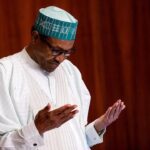As the crisis at Nnamdi Azikiwe University Awka worsens following the advertised criteria for selecting the institution’s Vice-Chancellor, the Senate representatives of the university have called on President Bola Ahmed Tinubu to dissolve the Greg Mbadiwe-led council.
The senators attributed the crisis in the university to the bullying tactics of Pro-Chancellor Greg Mbadiwe in managing university affairs.
The Senate representatives made the call at a meeting presided over by Acting Vice-Chancellor Prof. Carol Umobi over the weekend, which ended in a stalemate.
The Senate representatives agreed that President Bola Ahmed Tinubu dissolving the governing council would be the only necessary measure to safeguard the university’s future and integrity.
The Senate stated it cannot continue to operate under this oppressive regime of Mbadiwe, warning that the Pro-Chancellor’s actions could jeopardize the institution’s autonomy and academic excellence.
The Senate called upon President Bola Ahmed Tinubu to dissolve the governing council as a necessary measure to safeguard the university’s future.
In a united voice, the Senate representatives resolved to withhold cooperation with the current governing council and requested an extension of Acting Vice-Chancellor Prof. Carol Arinze-Umobi’s tenure until a new governing council is appointed.
In a show of solidarity, various groups within the university community staged protests, brandishing placards with slogans like “Dissolve Mbadiwe’s Council,” “Save UNIZIK,” and “Academic Excellence, Not Cash-and-Carry.” The unrest has ignited fears regarding the university’s trajectory and its broader impact on the academic sphere.
The assembly of Senate representatives also gave a scathing report on the Pro-Chancellor’s conduct during a recent governing council meeting, claiming that their attempts to engage him in constructive dialogue fell on deaf ears. According to the senators, Mbadiwe is being insensitive to the needs of the university and is unsuitable for the role of Pro-Chancellor, raising concerns that have grown since his council took office.
During the failed meeting, Senate members overwhelmingly rejected the advertisement for the Vice-Chancellor position, which stipulated that candidates must have attracted a N400 million grant to the university. They described this requirement as a “cash-and-carry” approach that undermines the institution’s academic integrity.
Additionally, the requirement that only candidates with a PhD could apply was heavily criticized, with suggestions that equivalent qualifications—such as medical fellowships—should also be considered essential.
The Senate representatives also raised concerns about the stipulation that candidates must possess 15 years of post-PhD experience and questioned the rationale for favoring candidates without substantial administrative backgrounds, such as experience as department heads or deans.
Meanwhile,the Medical and Dental Consultants Association of Nigeria (MDCAN) has similarly condemned what it sees as a deliberate effort to exclude its members from the VC candidacy. This condemnation followed an emergency general meeting of MDCAN, which issued a communiqué demanding the retraction of the advertisement, warning that failure to comply within seven days could lead to a total shutdown of medical education at the university.
Prof. Berthran Obi-Nwosu of the Department of Obstetrics and Gynecology addressed journalists after the stalled meeting, stating that while the Senate awaits an urgent response from the President, they strongly objected to the exclusion of clinical professors from the Vice-Chancellor candidacy.
He emphasised the need for criteria that accurately reflect the qualifications of clinical academics, calling the current stipulations “obnoxious.”
Obi-Nwosu stated, “We strive for a cancellation of this advert and a new one that acknowledges clinical professors’ qualifications. Segregating during the election process is unacceptable, as it disregards the established standards of our institution. We have protested; the Acting VC is the first person who received our protest letter. The first VC of UNIZIK, Prof. Nwakor Festus, now deceased, was a fellow. The immediate past VC of UNN was also a fellow. What I am trying to say is that these standards are well-established. At the University of Ibadan, one of the highest-ranking universities in the country, they do not dictate what degree you have before you become a professor.”
Professor Obi-Nwosu further commended the Acting VC for being receptive to their concerns. He stated that medical professors have raised their voices in protest against the contentious criteria set for the Vice-Chancellor position.
The crisis at UNIZIK signals a pivotal moment for the institution as it grapples with internal discord and external scrutiny. With the situation evolving, all eyes are on the university’s leadership and the potential implications for its future.

 Join Daily Trust WhatsApp Community For Quick Access To News and Happenings Around You.
Join Daily Trust WhatsApp Community For Quick Access To News and Happenings Around You.


